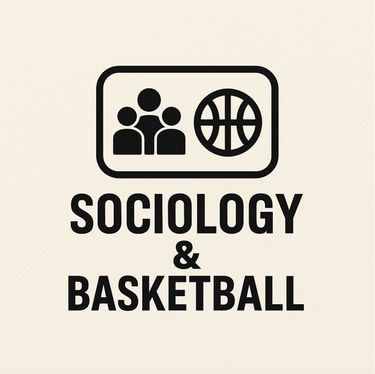The Impact of Social Media on Identity Formation
Jad A.
12/21/20232 min read
Identity formation is the process of understanding who we are and how we relate to others. It is the knowing of what makes us unique. With social media being as prominent as it is, it was inevitable for it to have a huge impact on everyone’s identity formation. Social media is a “mirror” of our identity; it is a platform for experimentation. A “For You Page” on TikTok or Instagram is personalized to show everything that you would personally be impacted by, relate to, or find funny. Another aspect of this “mirroring”, is how trends influence lifestyle choices. I believe that the majority of these choices that teenagers make are largely inspired by what they see on social media: fashion, activities, habits, etc.
Social media has made people more connected than ever. That is a line that I’ve heard a lot in my life. However, as a member of the generation that spends the most time on social media daily, I can tell you that this line is not what it seems. In a perfect world, yes, social media would be a driving force for connecting people who otherwise would have trouble staying in touch. But in our day to day lives, online communication is simply a way to avoid real connection between people. This may sound dramatic, yet, it is the truth. I cannot speak for the older generations, like millennials. For my generation, though, I have first hand experience with such social media interactions. A text via whatever platform (Instagram, SnapChat, iMessages, etc.) is a way to avoid real confrontation. Of course, this is excluding the casual and quick update-like texts: “I’m on my way”, “Just picked up the package”, etc. The reality of texting is that there are so many unwritten rules that are frankly hard to keep track of. These rules include the following: don’t respond too quick or else they will think you have nothing better to do than sit on your phone and wait for people to text you; don’t leave someone on “open”, instead leave them on “delivered”; don’t open the text until you know exactly what to say back. All of these rules restrict the authenticity of talking to someone. These rules drag out conversation over multiple days because someone “didn’t know what to say”.
I talked about identity formation through social media, and then I talked about the suspect connections made through social media. Overall, is social media a good thing? Do the positives outweigh the negatives? Are the negatives really that negative? No one said that getting most of your style, humor, and personality from social media is a bad thing. And just because a lot of the social media interactions are not very authentic, does not mean that it is taking away from the real connections made between people in real life. So my conclusion is this: although the benefits of social media are oftentimes blown out of proportion, especially the ones related to genuine relationships, this does not take away the fact that social media has opened up countless opportunities for anyone to take advantage of without restricting what preceded it.
